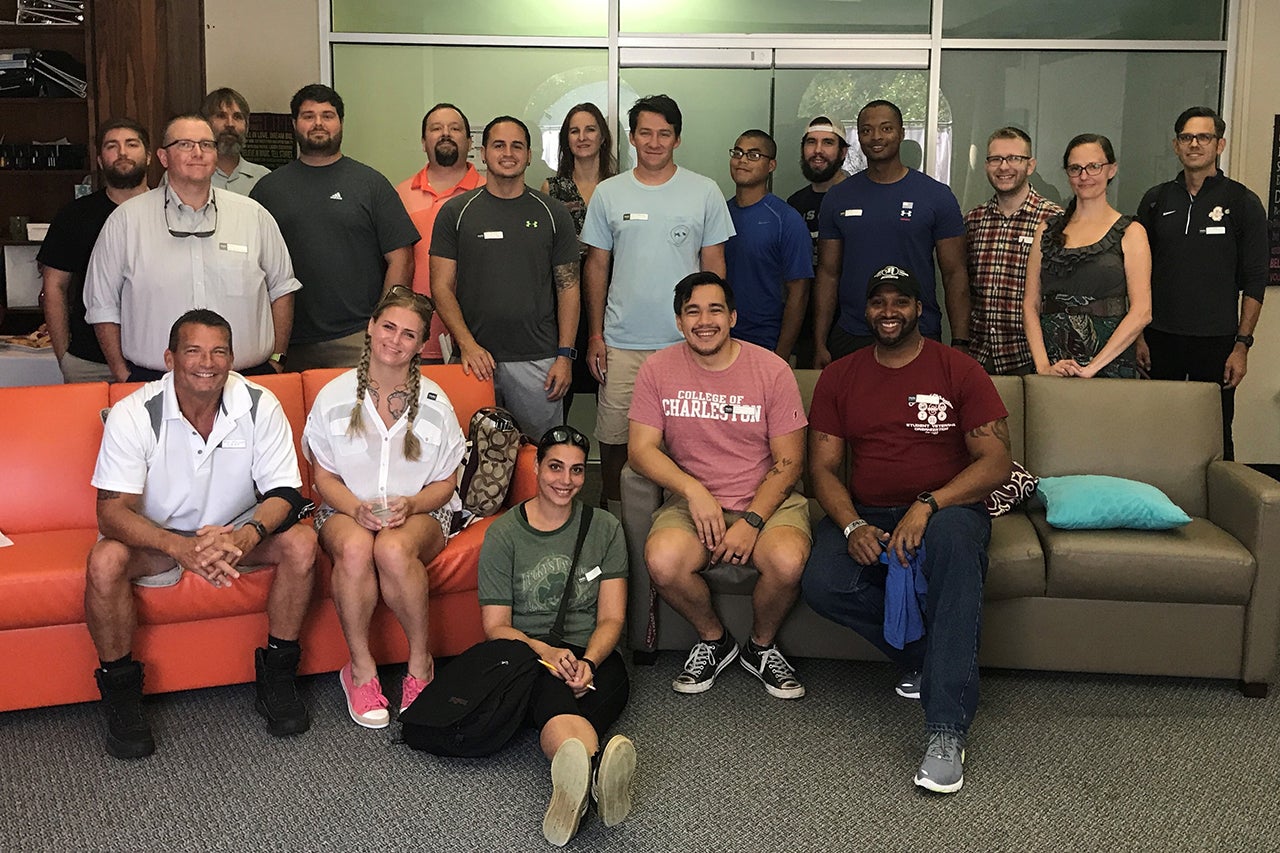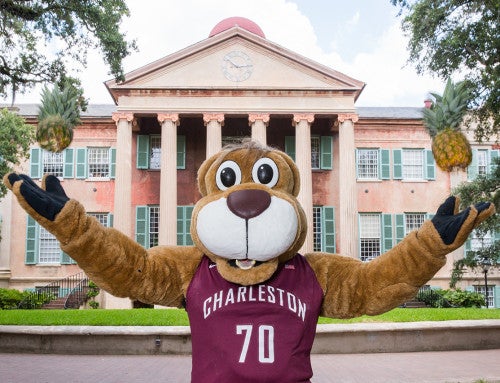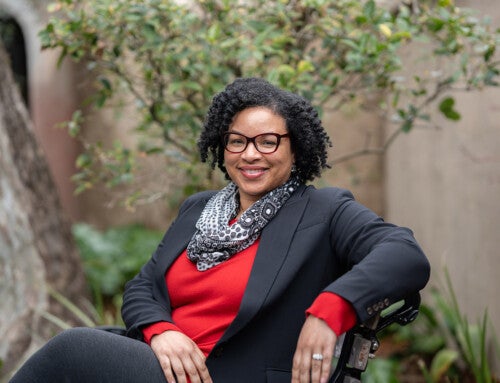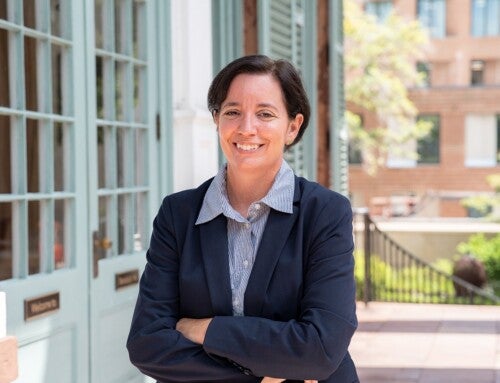by Vance Sawyer Churchwell
The College of Charleston has more than 200 military veteran students on campus – double the number from just five years ago. And to meet the unique needs of this growing population, which includes active duty, veteran, reservist, and National Guard members, the College continues to expand resources through the office of Veteran and Military Student Services.
One new program called Green Zone Training aims to help faculty and staff understand the unique experiences and perspectives that veterans bring to campus from their time in the service. The training is open to all faculty and staff. The next training session will be held from 10 a.m. to 11:30 a.m. on Monday, Feb. 4, 2019, in Addlestone Library, Room 227. Registration is required at the following link: https://goo.gl/forms/RmVsfCetiPjfrGCe2.

Faculty and staff who complete Green Zone Training receive a sticker to display at their work areas.
Jessica Wilkes, a U.S. Air Force veteran and director of Veteran and Military Student Services, says the objective of the training is to build a better learning experience for both student veterans and the larger campus community. And the best way to accomplish that is by making faculty and staff more aware of the types of things that veterans may be dealing with outside the classroom, says Wilkes.
“Veterans tend to be older than traditional undergraduates,” she says. “They may be homeowners and have outside professional careers. They are more likely to commute to campus and to have spouses and children.”
Among the topics that the training covers are navigating distractions in the classroom, participation in group class assignments and the possibility that students still serving in the service may have their schedules disrupted by military obligations and deployments. The training also tackles weightier issues such as post-traumatic stress disorder (PTSD) and veteran suicide.
Given that many faculty members have found that having student veterans in class enriches the academic experience for all students, the training also offers advice on how faculty can take advantage of the unique experiences of veterans in a way that enhances class discussions.
A key part of each training session is a Q&A with a panel of student veterans. At one recent training session, senior and Army veteran Ali Ditommaso said that many of her classmates are the same age as her daughter and that even though she sometimes feels disconnected from her classmates, she falls back on her experience as a parent to help connect with younger students.

Student veterans at the College. (Photos provided by Veteran and Military Student Services)
The panelists said they want their professors to be upfront with them and to not sugarcoat feedback about their academic performance.
“If my work sucks, tell me it sucks, so I can fix it,” said Lanear Brown, a retired Air Force veteran and president of CofC’s Student Veteran Organization.
Another issue the panelists addressed is the prevention of veteran suicides. They encouraged members of the campus community to report problems if a student veteran seems to be struggling in some way.
“If you see someone who is not right, find one of us and we will come relieve you,” said Brown. “We will stay with them.”
Some of the challenges that student veterans face in the classroom stem from other students not sharing the same values. As an example, one student veteran on the panel noted the habit that many students have of packing up their book bags during the last minutes of class. All of the panelists seemed to agree that this practice was not only distracting, but also disrespectful to the professor, who might be sharing important details about assignments and due dates.
Vance Sawyer Churchwell, a Navy veteran and CofC senior, writes about student veterans and military issues.




